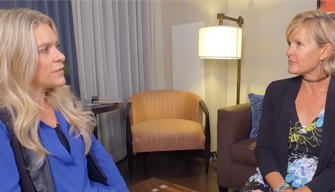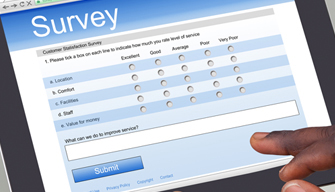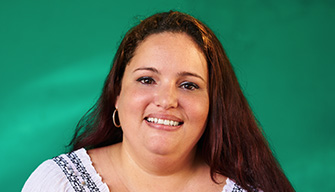
AUTHOR(S)
Haymarket Medical Education
Obesity Learning Center
myCME’s Obesity Learning Center includes a collection of variable-length educational activities and supplemental resources that educators can assign to students or look to for inspiration on how to incorporate obesity into the curriculum.

The target audience is primary care providers and clinicians with an interest in the management of obesity, including physicians (MD/DOs), nurse practitioners (NPs), physician assistants (PAs), nurses, nutritionists, and dietitians.
FEATURED ACTIVITIES
 Follow the Science: Dietary Interventions for the Management of Obesity
Follow the Science: Dietary Interventions for the Management of Obesity
In this myCME House Calls™ video, a noted obesity medicine specialist and a dietician provide practical tips for how clinicians can educate and motivate their patients to undertake meaningful lifestyle style change, with a focus on how to implement a low-carbohydrate diet to attain meaningful, sustainable weight loss that leads to beneficial health
At the conclusion of this activity, participants should be better able to:
- Describe the scientific evidence for interventions that achieve both lasting weight control and overall health improvement
- Integrate evidence-based observations into treatment planning and dietary recommendations for healthy and sustainable weight loss
- Effectively counsel patients on how to implement sustainable lifestyle change, including following a low-carbohydrate diet
 The National Obesity Challenge—How Does Your Practice Stack Up?
The National Obesity Challenge—How Does Your Practice Stack Up?
The following self-assessment survey is offered for CME credit and is designed to evaluate learners’ current knowledge and skills related to the management of obesity.
At the conclusion of this activity, participants should be better able to:
- Describe the complex and heterogeneous mechanisms that contribute to the chronicity of obesity
- Identify how pharmacotherapies can address perturbations of the neural and hormonal pathways that regulate appetite and energy balance
- Develop evidence-based, individualized treatment approaches, including the incorporation of pharmacotherapy with behavioral therapy, to achieve clinically meaningful and sustainable weight loss
- Implement patient-centric strategies to overcome barriers to weight loss, using a shared decision-making approach that destigmatizes obesity and promotes weight loss as a path to improved health
 Chronic Obesity: Pathways to Sustainable Long-term Control
Chronic Obesity: Pathways to Sustainable Long-term Control
In this video, 3 experts in the management of obesity review the neurobiological and psychological pathways associated with appetite and weight gain and explain how the interaction of lifestyle management and pharmacotherapy can be leveraged to attain sustainable long-term control of overweight and obesity.
After completing the activity, the participant should be better able to:
- Describe the complex and heterogeneous mechanisms that contribute to the chronicity of obesity
- Identify how pharmacotherapies can address perturbations of the neural and hormonal pathways that regulate appetite and energy balance
- Develop evidence-based, individualized treatment approaches, including the incorporation of pharmacotherapy with behavioral therapy, to achieve clinically meaningful and sustainable weight loss
- Implement patient-centric strategies to overcome barriers to weight loss, using a shared decision-making approach that destigmatizes obesity and promotes weight loss as a path to improved health
 Case 1 – An 48-Year-Old Man Interested in Weight Loss
Case 1 – An 48-Year-Old Man Interested in Weight Loss
This Case Clinic illustrates an effective dietary strategy for weight loss as implemented in a man with obesity and multiple cardiometabolic risk factors who has failed in his efforts to lose weight by following the traditional advice to limit fat and calorie intake.
At the conclusion of this activity, participants should be better able to:
- Identify the health risks associated with overweight and obesity
- Apply individualized criteria to assess healthy weight, overweight, and obesity patient status
- Discuss the advantages of food-based dietary interventions for metabolic health and weight and be familiar with the evidence for the benefits and risks of various diets
- Differentiate between different measures of carbohydrate quality, including fiber content, whole grain content, glycemic index and glycemic load, and carbohydrate to fiber ratio
 Case 2 – Overweight 35-Year-Old African American Woman with T2DM
Case 2 – Overweight 35-Year-Old African American Woman with T2DM
This interactive Case Clinic illustrates how a low-carbohydrate ketogenic diet that improves glycemic control can improve clinical outcomes, including a reduction in the need for medication to control diabetes and other cardiometabolic risk factors.
At the conclusion of this activity, participants should be better able to:
- Apply individualized criteria to determine the optimal approach to weight loss with glycemic control in patients with overweight/obesity and type 2 diabetes mellitus (T2DM)
- Explain the evidence base for use of a low-carbohydrate, ketogenic diet for weight loss and cardiometabolic risk factor reduction in T2DM
- Utilize shared decision-making to help patients with T2DM successfully undertake sustainable lifestyle change
- Implement a ketogenic diet and manage patients according established primary care metrics, including monitoring and adjustment of concomitant medications
 Case 3 – A 19-Year-Old Latina College Student with Prediabetes
Case 3 – A 19-Year-Old Latina College Student with Prediabetes
This interactive Case Clinic illustrates how lifestyle changes centered on a low-carbohydrate weight-loss diet can prevent the progression of prediabetes to overt diabetes.
At the conclusion of this activity, participants should be better able to:
- Describe the health risks associated with overweight and obesity, including prediabetes
- Identify patients who meet the criteria for a diagnosis of prediabetes
- Advise patients on the advantages and limitations of various dietary interventions for metabolic health and weight control
- Use shared decision-making to help patients with obesity adopt and maintain healthy behaviors to prevent the development and/or progression of diabetes
NOTE: To obtain credit, a score of 70% or better on the post-test is required. This activity is offered at no cost to participants as of December 2019.
© 2019 Haymarket Media, Inc.
